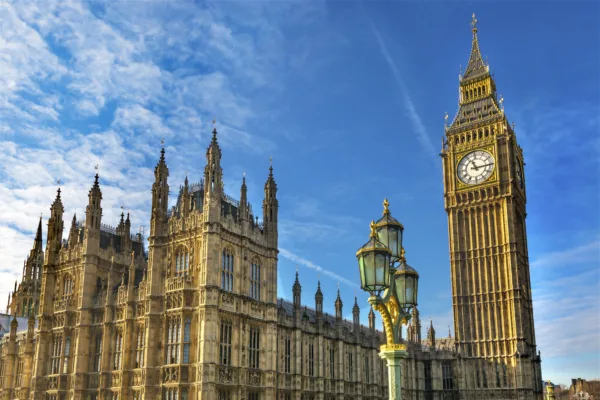Hillsborough Law: What Public Authorities and Service Providers Need to Know

On 16 September 2025, the Government introduced the Public Authority (Accountability) Bill – widely known as the Hillsborough Law – into Parliament. The Bill represents one of the most significant shifts in recent years in how public bodies, officials, and contractors delivering public services are expected to operate. For those of us regularly acting against or advising such clients in respect of Inquests, Inquiries and Investigations, it is going to be central to our practices to ensure compliance with this future legislation when it eventually lands.
This Bill is, in part, a direct response to systemic failures identified in Hillsborough, Grenfell, and the infected blood inquiries, as well as the Horizon case. Its focus is clear: to embed truth, accountability, and candour at the heart of public service.
The Three Core Provisions
- Duty of Candour and Assistance
For the first time, public bodies, officials, and certain private contractors will be under a statutory duty of candour during inquiries, inquests, and investigations — including non-statutory inquiries.
This means organisations must proactively disclose information, even where it is unfavourable, with the overarching goal of helping investigators establish the truth. Breaches may result in criminal sanctions, including imprisonment, as well as reputational damage and loss of public trust. The application of this duty within the arena of non-statutory inquiries will enhance its powers to seek information.
- Professional Duties of Candour
All public authorities must look to embed candour into their internal governance through professional codes of ethics, based on the Nolan Principles of honesty, integrity, accountability, selflessness, openness, leadership, and objectivity.
Failure to comply could amount to gross misconduct, leading to dismissal. There will therefore need to be clear processes for handling both internal concerns and external complaints, with accountability resting squarely on leadership.
- Offence of Misleading the Public
It will become a criminal offence for a public authority or official to intentionally or recklessly mislead the public in a seriously improper way. This is aimed at cover-ups and dishonest communications that cause, or risk causing, serious harm.
Examples could include issuing false public statements about the cause of a major incident, or instructing staff to mislead the press to avoid criticism.
Preparing for Change
Although the Bill is at an early stage, organisations should begin preparing now. Change will be needed in three key areas:
- Governance and Compliance – Review policies, training, and structures to align with new candour obligations.
- Risk Management – Audit communication protocols, introduce “candour checks,” and keep clear audit trails of public statements.
- Workforce and Culture – Train staff at all levels on proactive disclosure and embed candour into performance and ethics frameworks.
Practical steps might include:
- Mapping existing reporting and disclosure obligations and updating escalation protocols.
- Drafting or updating codes of ethics, in consultation with employees and representative bodies.
- Establishing transparent whistleblowing channels with sufficient senior oversight.
- Training executives and communications teams on the risks of misleading statements.
Next Steps
Cultural change cannot be achieved overnight. By acting now — rather than waiting until the Bill becomes law — organisations can reduce both legal risk and reputational harm.
In short: the Hillsborough Law is designed to ensure that truth is no longer optional in public service. Public bodies and those delivering services on their behalf would be wise to start preparing now.
And finally…. on legal representation
I have written extensively on this aspect of Inquests over the years. At the first Hillsborough inquest, bereaved families had no legal representation, while state bodies were heavily resourced, creating an obvious imbalance of power. Successive reports, including Bishop James Jones’ The Patronising Disposition of Unaccountable Power (2017) and inquiries by the Justice Committee (2021 and 2024), have highlighted the need to address this “inequality of arms” by guaranteeing legal aid for families where public authorities are represented. In addition to the core features of the Bill as set out above, the new Bill seeks to deliver this: It expands non-means tested legal aid to cover both legal help and advocacy whenever a public authority is an interested person at an inquest, removing the need for families to navigate complex Exceptional Case Funding rules. Only one publicly funded advocate will normally be provided per family group, to preserve the inquisitorial nature of inquests. Alongside this, the Bill imposes new duties on public authorities to engage legal representation only where necessary and proportionate, to follow statutory guidance on supporting bereaved families, and to ensure their legal teams behave in line with the inquisitorial purpose of inquests and inquiries. Chairs of inquiries and coroners will also gain powers to challenge inappropriate conduct. Taken together, these reforms aim to level the playing field, simplify access to justice, and drive cultural change so that families can participate fully, fairly, and with dignity in proceedings following disasters or state-related deaths.
Article by Emma Zeb KC
Disclaimer
This content is provided free of charge for information purposes only. It does not constitute legal advice and should not be relied on as such. No responsibility for the accuracy and/or correctness of the information and commentary set out in the article, or for any consequences of relying on it, is assumed or accepted by any member of Chambers or by Chambers as a whole.
Contact
Please note that we do not give legal advice on individual cases which may relate to this content other than by way of formal instruction of a member of Gatehouse Chambers. However, if you have any other queries about this content please contact:


